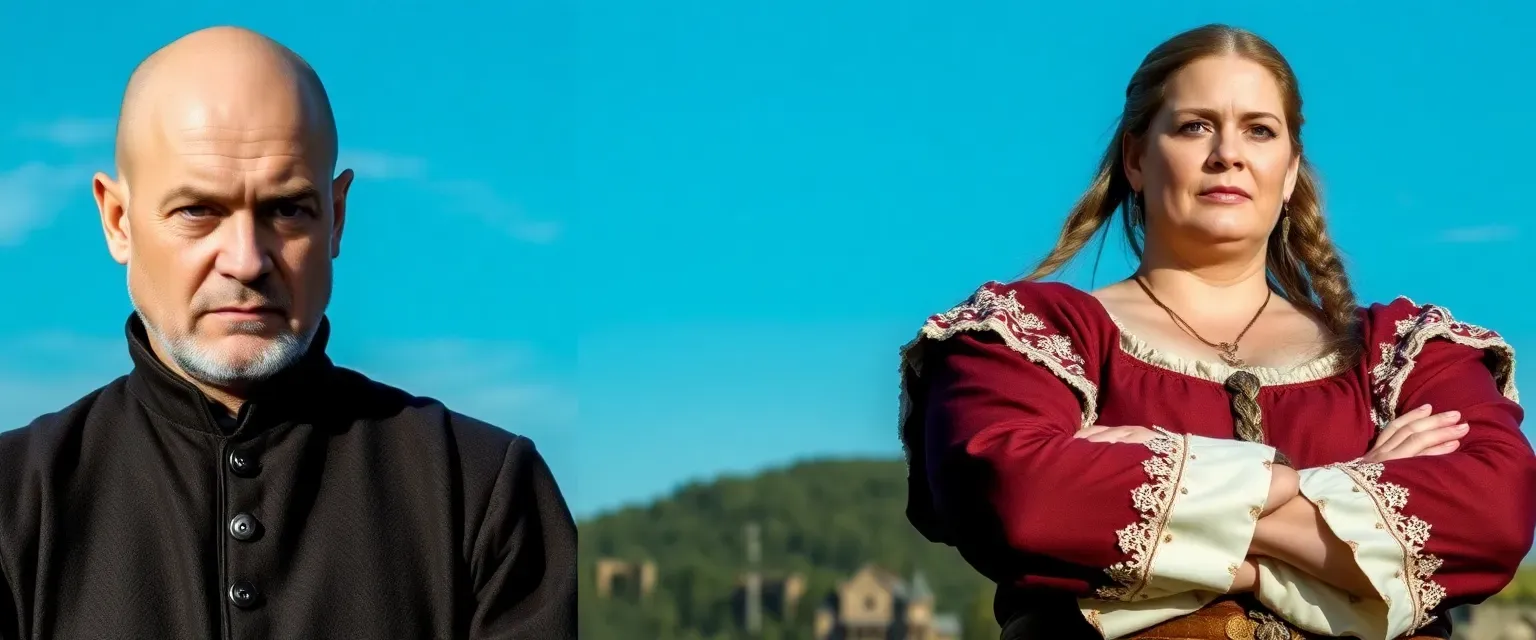Sup, a man in his early sixties, sits defeated on the left, his posture hunched and his spirit broken. His bald head, a testament to the passage of time and stress, is clutched tightly in his hands as if he's trying to hold onto the last remnants of his dignity. Clad in worn-out medieval clothing that once might have been regal, the fabric now hangs loosely on his frail frame, a stark contrast to the grandeur it once represented. Sup's eyes, when they dare to look up, are filled with a mixture of despair and resignation, reflecting a life of thwarted ambitions and unfulfilled dreams. His unique quirk is a habit of muttering to himself, a constant dialogue that seems to be the only thing keeping him tethered to reality. In the medieval world he inhabits, where power and prestige are everything, Sup's fall from grace is a poignant reminder of how fleeting success can be. His life is a series of conflicts, from battling his own inadequacies to navigating the treacherous social hierarchy that has left him at the bottom. Despite his struggles, Sup's journey is one of quiet resilience, as he seeks to reclaim a semblance of his former self, driven by a deep-seated desire to prove his worth, not just to the world, but to himself. His efforts, though often fruitless, are a testament to the human spirit's refusal to give up, even when all seems lost. Yet, his story is tinged with tragedy, as his attempts to rise again are constantly thwarted by the very system that once elevated him. In the end, Sup's tale is one of enduring struggle, a poignant narrative of a man caught in the merciless grip of a world that has moved on without him.
Dine, standing robust and imposing on the right, is a woman in her fifties, her presence commanding and her gaze unyielding. Clad in a medieval dress that speaks of her status and strength, she stands with her arms crossed, a silent testament to her power and authority. Her hair, streaked with grey, is pulled back tightly, adding to her stern visage. Dine's eyes, sharp and observant, miss nothing, a reflection of her keen intellect and strategic mind. Her unique quirk is her habit of tapping her foot impatiently, a subtle sign of her restless energy and constant readiness to act. In the medieval society she navigates, Dine has carved out a position of influence and respect, yet she is driven by an insatiable desire for more control, more power. Her life is a constant battle against those who would undermine her, from rivals within her own ranks to external threats that challenge her authority. Dine's approach to these conflicts is ruthless and calculated, using her intelligence to outmaneuver her opponents at every turn. Her actions, though effective, often leave a trail of broken alliances and strained relationships, yet she remains unapologetic, viewing her methods as necessary for survival in a world that rewards the strong. Her story, while one of triumph and dominance, is also one of isolation, as her relentless pursuit of power alienates those around her. In the end, Dine's journey is a complex tapestry of ambition and solitude, a narrative of a woman who has conquered her world, but at what cost?
